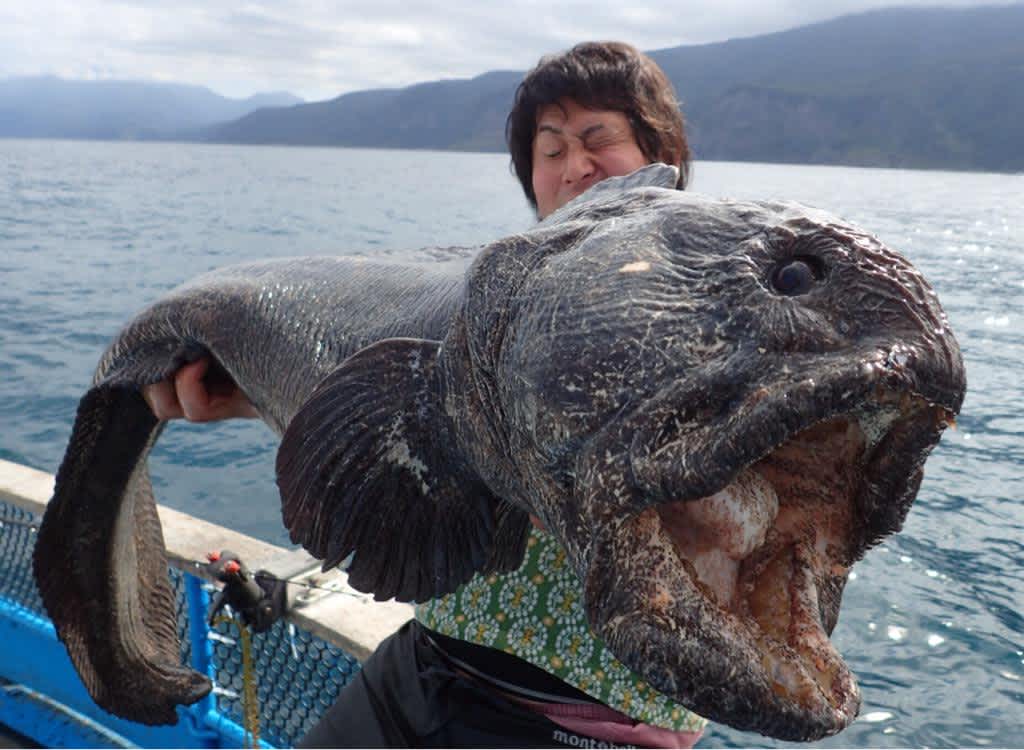Japanese Angler Catches Giant Wolffish near Fukushima
OutdoorHub Reporters 09.17.15

Hirasaka Hiroshio has a job that most anglers would envy. The Japanese fisherman has spent the past several years traveling, fishing, and eating strange or rarely-seen fish. Hirasaka is in the news for recently landing a massive wolffish off the coast of Hokkaido, but the fish’s size is only part of the reason why the catch has caused a stir. The other reason is that the wolffish was caught only a few hundred miles from Fukushima, the site of the 2011 nuclear power plant disaster.
Wolffish generally grow to only about three feet and about 30 pounds in weight. The wolffish caught by Hirasaka is significantly larger, which led to speculation that the critter may have been affected by radioactive runoff from the Fukushima disaster zone.
オオカミウオの写真もっとよこせという声があったのでもう一枚。 pic.twitter.com/1X2ZRPHGQj
— 平坂寛 (@hirahiroro) August 31, 2015
Fishing in the region was banned as recently as 2013 after scientists found fish that measured several thousand times over the acceptable radiation limit for human consumption. Although fishing and the sale of fish harvested from the region have resumed, many are still wary of lingering aftereffects, especially after it was discovered that 300 tons of contaminated water had been leaking from one of the plant’s holding tanks.
Radioactive contamination has been suspected to led to deformities such as gigantism. Visitors to Chernboyl have reported sightings of massive wels catfish. However, wels catfish naturally grow to large sizes. Scientists say that despite elevated levels of radioactive isotopes near Fukushima, there should be no significant harm to the local marine life.
What explains this massive wolffish? Like any other large fish, perhaps it is just a case of good genes, plenty of food, and time to grow. Hirasaka himself wrote online that he has seen wolffish of the same size before and did not think this particular one was special. However, the angler did seem to be quite taken with the fish—not that it means the critter will escape the dinner table.
“It was worth flying to Shiretoko [Hokkaido] twice within three months,” the angler wrote on Twitter. “This guy is super cool!”
Hirasaka did not say whether he released the fish or ended up cooking it.

